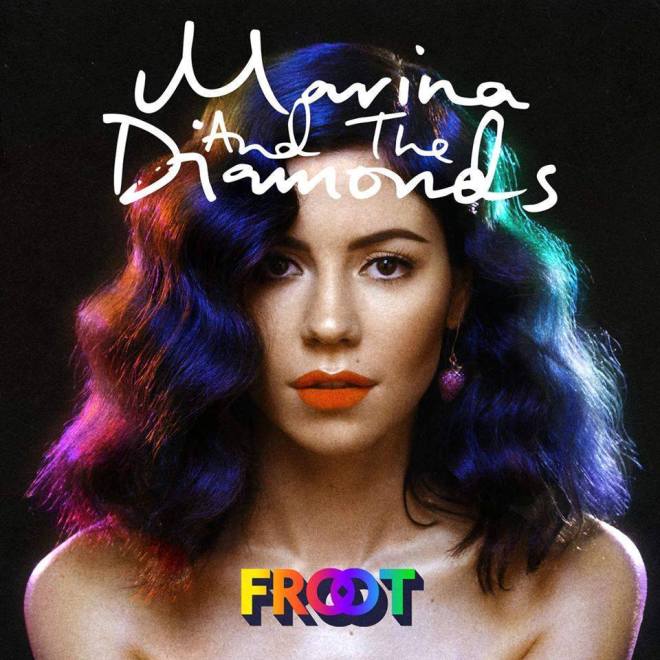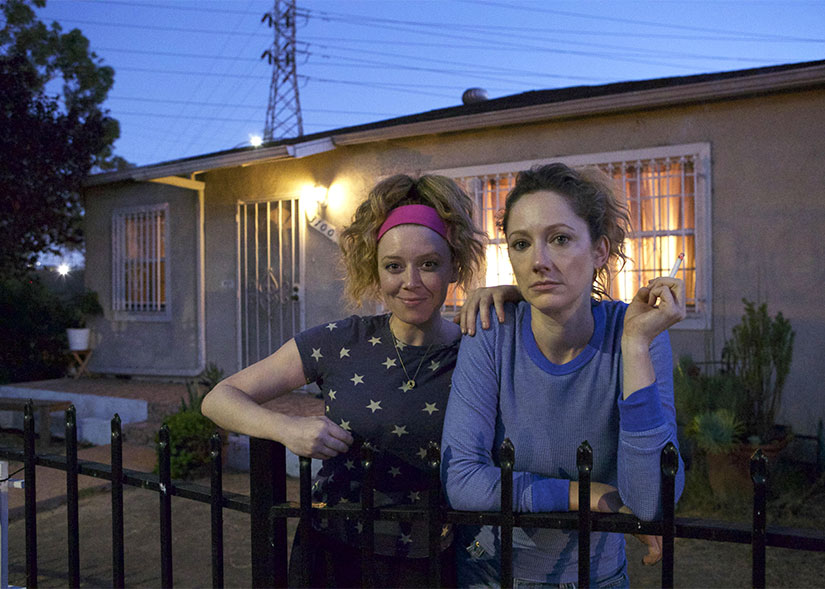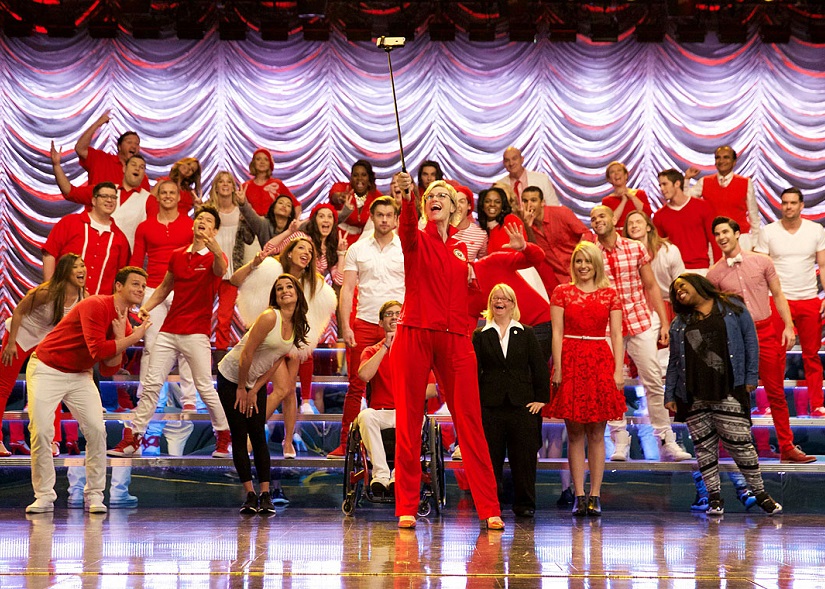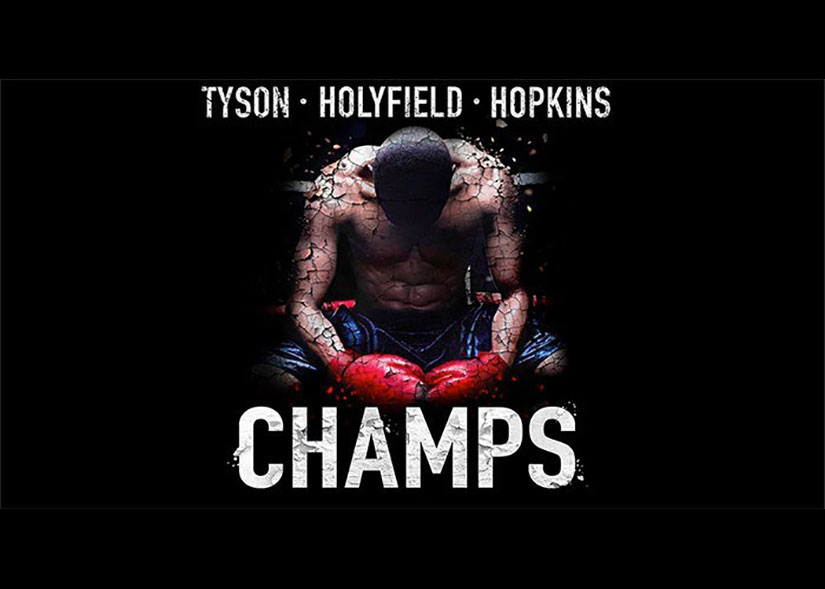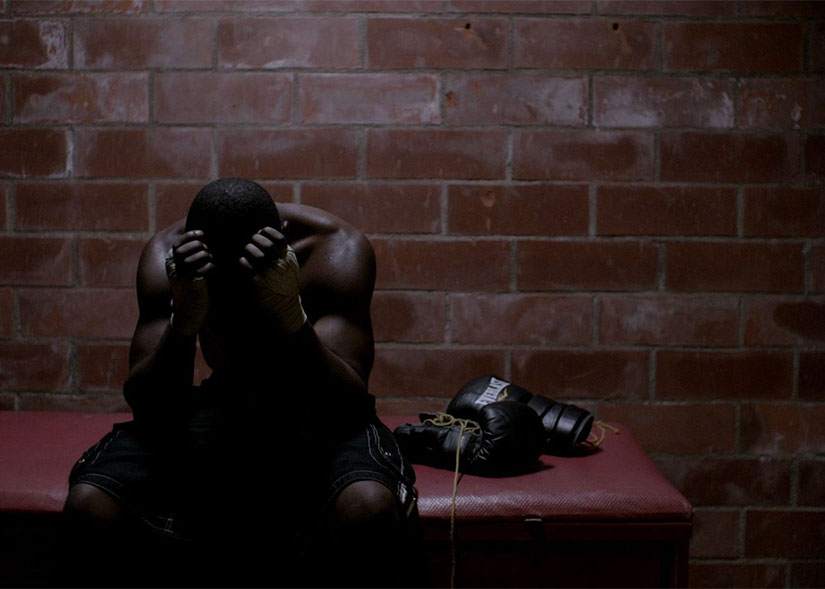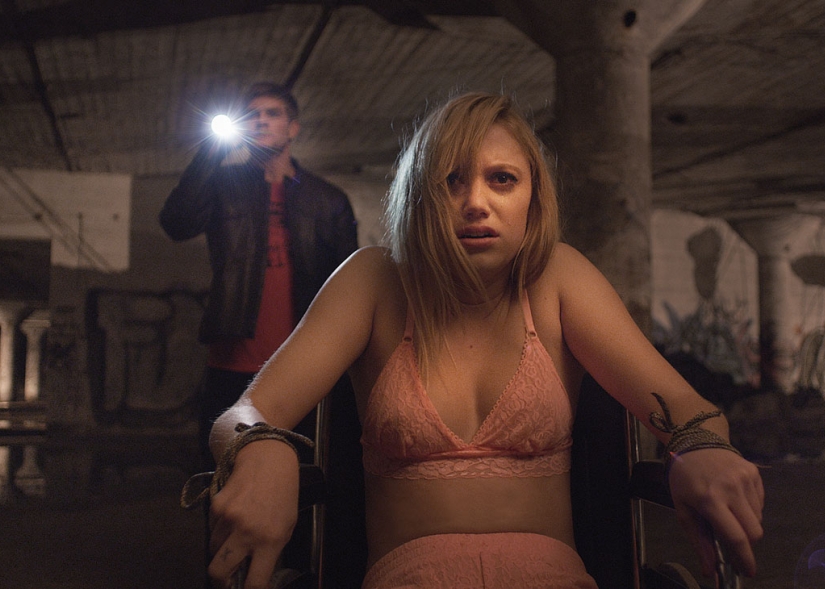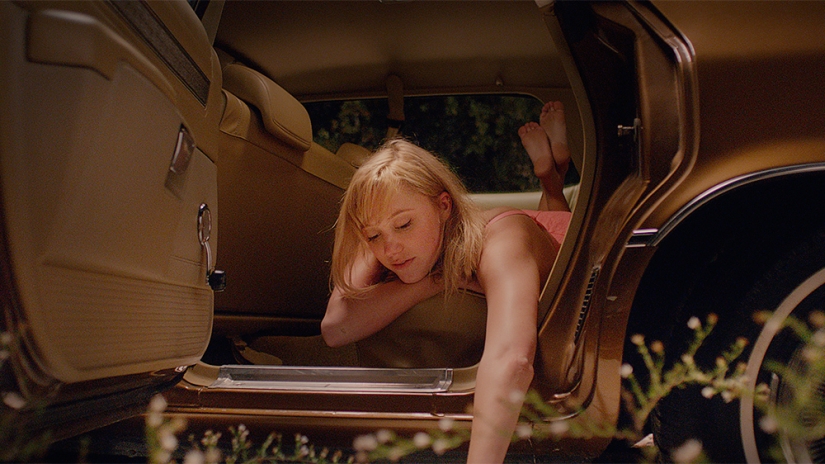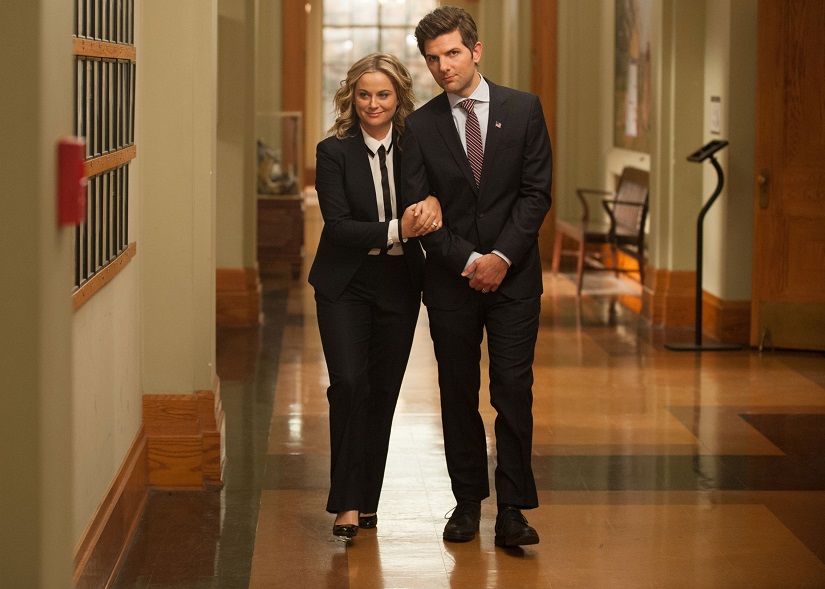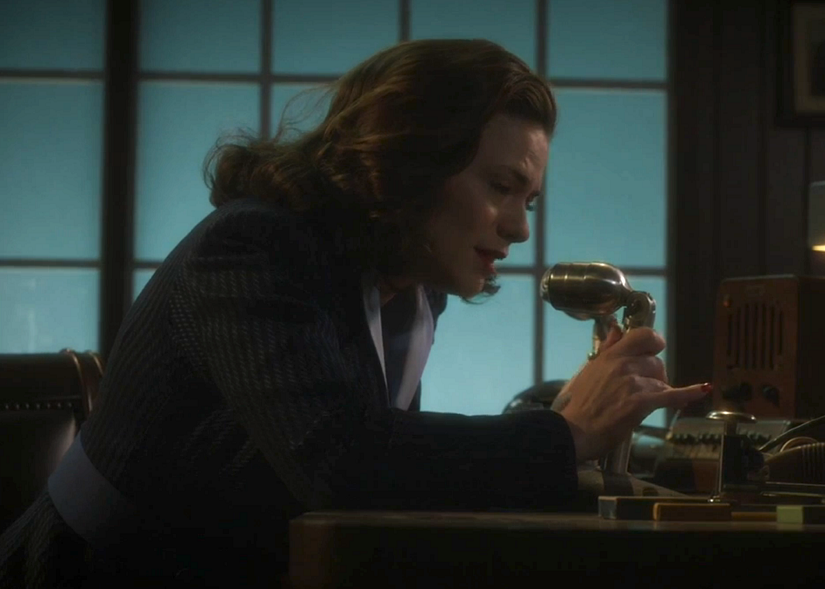Marina and the Diamonds: "FROOT"
The saying, “the third times’ the charm” has worked for few artists, and Marina and the Diamonds fits the phrase to a T when it comes to the release of her junior album, FROOT. She’s already established herself as a powerhouse indie-pop woman with many faces, some sweet and some fierce, but always fresh.
[youtube id="17UL5ks9amY" align="center" mode="normal" maxwidth="660"]
With the release of her first album, The Family Jewels, in 2010, Marina Diamand is was an excited, young woman searching for the road of fame and fortune with an innocent sparkle in her voice. Her sophomore album, Electra Heart, took listeners on a journey through her alter-ego’s Madonna-esque heartbreaker lifestyle, which produced chart-topping hits like “How To Be A Heartbreaker” and “Primadonna” in 2012.
FROOT is different than anything Marina has done in the past; then again, she’s always been this way. Every album she has put out has been a different persona, but FROOT is Marina all grown-up. Taking cues from a place of self-discovery and space-y themes, FROOT is the perfect balance of sweet and powerful.
[youtube id="BI_0HIz_4JY" align="center" mode="normal" maxwidth="660"]
Her singles thus far, “Froot” and “Forget,” might be the only two songs off the album that are reminiscent of the old Marina with Bjork style vocals mixed in. Nonetheless, they’re pop chart worthy while maintaining a strong indie sound (which might have to do with the 1980’s arcade 8-bit soundbyte in the background). “Blue,” a personal favorite, has that heartbreaker “girl power” perspective that Marina has been perfect at putting into lyrics: “No, I don’t love you/No, I don’t care/I just want to be held when I’m scared/And all I want is one night with you/Just cause I’m selfish/I know it’s true.”
Once again, Marina has done everything herself. Standing behind her one producer this time, Marina oversaw the mixing, the editing and the finishing all while writing all the lyrics herself. She said she was able to grow up, in a sense, from Electra Heart and become the woman she is today because of FROOT. Taking on influences from 70's disco and early 80's electronica, FROOT holds its own sound with Marina being the ringmaster behind it all.
While FROOT is different than the faces of Marina in the past, some of the songs might get lost for fans of her earlier, more upbeat work. It's not that the songs are good, it's that they are sultry and mature. Even if pop enthusiasts favor her singles off FOOT, the rest of the album is clearly definable as indie. But that's not why she does what she does; Marina wants people to follow her as she discovers herself and that's exactly why FROOT is the perfect fit as her junior album.
Fresno
Fresno
Director: Jamie Babbit
Rating: N/A
Release Date: March 14, 2015 (SXSW)
Fresno features a stellar cast of Natasha Lyonne (Orange is the New Black), Judy Greer (Archer), Aubrey Plaza (Parks and Recreation), Fred Armisen (Portlandia), and more that allures comedy lovers into not missing it. And with a plot that features Lyonne as an optimistic presence in her recovering sex addict and cynical sister played by Greer, the formula for a solid indie comedy is all but assured, right?
Read on and find out.
Shannon (Greer) is a recovering sex addict living and working with her younger sister, Martha (Lyonne), who takes her job as a hotel maid very seriously and is doing everything in her power to assure Shannon's successful recovery. However, after Shannon's relapse with a guest at the hotel ends with his death, the two decide to dispose of the body by bringing it to a pet cemetery for incineration. However, when the cemetery owners, played by Armisen and Fargo's Allison Tolman, blackmail them for $25,000, Shannon and Martha must come up with the money quickly in outlandish ways.
Fresno subverts the typical formula by making Shannon almost completely unlikeable save for her quick wit and other quirks, making her an anti-hero of sorts. It's an interesting take on the plot that allows Greer to play up the ungrateful, unrepentant type to let her comedy shine. However, the script and writing for the film is very flat and one-dimensional, despite some funny scenes set up, like robbing a sex shop and a rap-themed Bar Mitzvah.
In short, Fresno isn't very funny, save for some small exceptions. It's a shame, too, because the cast is made up of some really hilarious actors, yet they weren't given the proper material to truly show off their talents. In a nutshell, Fresno feels like a vehicle for Greer and Lyonne that unfortunately suffers from a flat or two.
[This Week In TV] Glee, Community, iZombie
This Week in TV is a weekly feature reviewing the best, worst and most interesting episodes of television from the past seven days. The plan is to cover a wide variety of shows, but not always the same ones each week, so let us know in the comments which ones you’d particularly like to read about. This week sees Glee give its farewell performance, Community make another miraculous resurrection, and iZombie premiere on the CW.
Champs
With this generation's new "megafight" between Manny Pacquiao and Floyd Mayweather coming in May, boxing is at a pivotal point in time where the future of the sport can return to the same heights it once experienced many years ago. Champs is a documentary that not only revisits the '90s heights of the sport in which heavyweight champions like Mike Tyson, Evander Holyfield, and Bernard Hopkins were three of the sport's most storied fighters... for both good and bad reasons.
Rather than follow the typical fare of most documentaries, writer/director Bert Marcus frames the documentary around the three boxers to examine the pratfalls of financial success for athletes who may not be the best equipped to handle the limelight, racism and poverty that pervaded the sport, and the very fact that boxing still goes unregulated with no true safety parameters set for its athletes. However, was Marcus successful in crafting a documentary that aims for bigger goals? Read on and find out.
[youtube id="yF1qq3fEYAM"]
Champs
Director: Bert Marcus
Rating: N/A
Release Date: March 13, 2015 (in theaters, On Demand, and iTunes)
As previously stated, Champs contextualizes the career trajectories of Mike Tyson, Evander Holyfield, and Bernard Hopkins with the socioeconomic issues that plagued them. While backgrounds of each boxer are examined in Champs, they aren't the focal point, but instead reference points to support the film's main goal of illustrating how the sport helped them escape the trouble they grew up with, just to face some of the same issues within their chosen fields.
Marcus focuses on this irony, but rather than be condescending, he illuminates the problems and issues that were present in hopes of bringing awareness. Furthermore, he compares the problems that plagued boxers with the same issues that are present right now in regards to boxer safety, sport regulation, etc. By taking this route for the film, Champs becomes not just a documentary set on a specific time, but one that compares and contrasts the past with the present through a sport that was once the country's largest.
The increased focus in direction and tonality is matched by feature film-levels of production quality, heightening the bar for the typical sports documentary, let alone documentaries in general. The documentary is also helped by direct assistance from Tyson, whom also produced and helped get in touch with some of the insiders interviewed. The way the film is presented, the majority of its audience will predictably come from boxing fans, but will also benefit those interested in modern social issues, which is a well-balanced product for a documentary that transcends the typical sports doc.
While I'm unfamiliar with Marcus' previous documentaries, Teenage Paparazzo and How to Make Money Selling Drugs, I'm confident if the rest of his filmography, both past and future, is anything like Champs, audiences will be drawn to them. His focus on telling captivating narrative to bring positive change to social issues matched with a high level of production quality is certainly Marcus' strongest skill with Champs, and even those unfamiliar with boxing and/or the modern climate of American sociology will be drawn to it.
[Review] It Follows
It Follows belongs in the pantheon of great suburban horror films like Halloween and A Nightmare on Elm Street. It's an impeccably crafted movie that haunts as much as it unnerves. What lingers isn't just the paranoia established from the outset or the constant sense that our heroes' lives are in danger, but something far more thoughtful.
Writer/director David Robert Mitchell uses 1980s genre tropes to examine teenagers as the cusp of adulthood. Many of the characters are obsessed with becoming adults or at least appearing mature, and yet they're also afraid to leave the comforts of youth and suburbia. To dig deeper into this material, Mitchell does advanced math with one of the most simple horror movie equations: "sex = death".
[youtube id="9tyMi1Hn32I"]
It Follows
Director: David Robert Mitchell
Rating: R
Release Date: March 13, 2015
Jay (Maika Monroe) hooks up with a guy named Hugh (Jake Weary), which wasn't such a good idea since he's the latest link in a chain of doomed sex partners. After having sex, the most recent partner becomes stalked by a supernatural presence that shambles mutely forward. Think a zombie or Michael Myers from Halloween. If the presence catches up with you, you die, and the previous sex partner is stalked next. All you can do is pass it on; sex is a kind of transmittable death sentence.
It sounds silly on the surface, and this sort of set-up might lead to exploitation territory in other hands, but Mitchell focuses on the characters and how the immanent threat of dying enters their sheltered lives. Like Jennifer Kent's The Babadook, It Follows is concerned with emotional stakes rather than just cheap scares, which is thanks to both the screenplay and the cast. By getting the audience to invest in this group of teenage friends and care about Jay's well-being, the horror is more palpable.
In slasher movies, sex usually signified a sin that needs to be punished or the horrible repercussions of pleasure, but there's more to sex in It Follows. Sex is both a rite of passage into adulthood and a kind of memento mori. In this film, "sex = death" is not a puritanical equation about the virtues or pragmatism of teenage virginity, but rather an acknowledgment about the inevitability of both sex and death in everyone's lives. Sex, like death and like the presence that's after Jay, is an unstoppable force.
All the rich metaphorical material would be mere garnish if Mitchell hadn't made a film that's so well put together. It Follows is shot with care, augmented by its original synthesizer score (a la classic John Carpenter) and the menacing sound design. In the opening shot of the film, we're given an extended take from a fixed spot on the street of a suburban neighborhood, panning to catch someone helpless and possibly insane. Something's not right in the world we've entered, which defies being pinned to a specific era, and we never exit this timeless, dreamlike state. That opening shot creates a space to deal with the idea of teenagehood, and it also lets the audience know that the adults can't help their children anymore. This confrontation with death is something their kids have to handle on their own.
So many of the images in It Follows are beautiful to look at given the way cinematographer Mike Gioulakis plays with color, movement, and negative space to emphasize the underlying emotions of each scene. Clayton Perry, Christian Dwiggins, and Lauren Robinson of the sound department also deserve high praise, foregrounding the dread even before the film's first shot. It Follows is a great reminder of how effective the most basic formal elements of a movie can be when every choice has a clear sense of purpose.
A bunch of horror and science fiction films of the last decade have tried to get by as successful pastiche and nothing more, as if recreating the past is sufficient. It's usually not. Most people can restate what's already been said, but what gives a work a life of its own is when someone says something original or reconsiders what's been said from different angles. It Follows is brimming with that sense of vitality, which makes everything it says about dying surprisingly potent.
[Review] Man Seeking Woman
There are a few shows on television that bring artistic originality to the table while being undoubtedly hilarious. There’s also a fine line when it comes to intelligent comedy and alternative comedy. In some cases, the line is blurred. Much like my Silicon Valley review, the new FXX show, Man Seeking Woman, has me utterly captivated by the somewhat campy, yet refined comedic rendition of literary boy-wonder Simon Rich’s novel, The Last Girlfriend On Earth: And Other Love Stories. This show is daring, absurd and relatable to anyone who has ever felt like love was out of their reach.
A little background about the novel is that Simon Rich is one of the world’s youngest and funniest writers in the literary community. Graduating from the prestigious Harvard University after becoming president of the iconic Harvard Lampoon, he landed a gig as the youngest writer for Saturday Night Live at just 24 years old. Within his first year he was nominated for an Emmy for his work on SNL. Later, he moved onto being a staff writer at Pixar. While he’s only 30 years old, he has published numerous humor novels and columns in the New Yorker similar to the style of acting played on the show. His book, The Last Girlfriend On Earth: And Other Love Stories, throws readers into a semi-fantasy world where impossible obstacles are put in front of him in order to get over a messy break-up and get back into the dating world.
[youtube id="GTTzk69hFQs"]
The show's key players, Jay Baruchel and Eric Andre, seemed like polar opposites when the show began based off Baruchel’s typecast of being a total granola, white dude and Andre’s chaotic, alternative comedy endeavour of The Eric Andre Show. Yet, when you see how Josh Greenberg (Baruchel) and Mike (Eric Andre) interact with each other, it comes as no surprise that they play off each other’s weaknesses. The show begins when Josh’s college girlfriend, Maggie, breaks up with him and in a desperate funk, Josh tries to be cope by attempting to get over his fear of meeting women, going on dates, talking to his mother and “finding himself.” With the help (or lack there of) of Mike and his sister Liz, Josh learns how to date in a world where love seems to fall into the category of being a necessity rather than a natural rite of passage in life for people in their mid-twenties.
[youtube id="2Hd3l291zo0"]
Problems that range from being set up on a blind date with an actual troll, finding out Maggie is dating Adolf Hitler (see video below), faking his own death to get out of a camping trip and becoming jealous of his short-lived girlfriend’s best friend, a tentacled Japanese penis monster, are all obstacles for Josh in the game of love. Man Seeking Woman adds depth to exploring love while bringing in nonsensical humor to the audience. With underlying themes such as finding the right girl, knowing when love is real and knowing when it’s not, the show puts authentic situations into play without leaving the viewers feeling heavy-hearted. If anything, viewers should feel connected to Josh; he’s the poster boy for “nice guys finish last” in a world full of alpha males who avoid love like it’s a prison sentence.
[youtube id="G-3OQC64nhU"]
The target audience is the millennial demographic, who seem to be completely consumed by superficial dating apps and drinking too much, which is addressed in the show as well. Yet, the show uncovers the compassionate side of Josh whenever he fails at trying to find, leave and sometimes, force these “love-y dove-y” feelings upon himself and the women in each episode. The dialogue is brief, to the point and easy to follow for audiences who are used to the antics that each actor portray in their previous work. Their real life situations of trying to find love in an unlovable world are backed by off-the-wall predicaments like having a priest perform an exorcism on your ex-girlfriend’s belongings that just won’t leave you alone or having to attend a destination wedding in actual hell. Better yet, your ex-girlfriend is at the same table as you. These are some of the weird comparisons and “what if” imaginative ideas everyone has thought about when given the short end of the stick of love. If you’re anything like Josh, there is a small glimmer of hope that you don’t have to go through it alone. You can catch the last couple of episodes on FXX at 10:30pm EST.
[This Week In TV] Parks & Recreation, Agent Carter, Victoria's Secret Swim Special
This Week in TV is a weekly feature reviewing the best, worst and most interesting episodes of television from the past seven days. The plan is to cover a wide variety of shows, but not always the same ones each week, so let us know in the comments which ones you’d particularly like to read about. This week sees the series finale of Parks & Recreation, Agent Carter reach the end of its eight-episode run, and Victoria's Secret draping semi-naked women across our televisions just because it can.
Parks & Recreation - "One Last Ride"
The outpouring of grief in certain corners of the internet over Parks & Rec's final farewell would seem disproportionate on the surface for a show which never did especially well in the ratings and whose output varied in quality over its final few seasons. It wouldn't be the first show to be lauded by a small but passionate internet fanbase - one need only look to Chuck or Community for shows whose very survival depended on it - but Parks seems to have struck a more personal and emotional chord with its fanbase than almost any other show to have gone before. The most passionate tributes to 30 Rock, for instance, came from women inspired by Tina Fey giving her sex a real voice in the television comedy landscape and, through her magnificent alter-ego, Liz Lemon, permission to be every bit as ridiculous as the men around her. Parks & Rec wasn't shy about its feminist leanings, but its audience seems to reach far beyond those narrow parameters: whether men or women, fans or critics, feminist or apolitical, even the Indiana tourist board, it seemed that no matter where you looked, love for the show was all around.
While I can hardly pretend to speak for such a wide variety of people, my personal feeling is that the intense passion so many felt for the show most likely grew out of one of its simplest, but most gently powerful characteristics: it was a show which, at its core, was kind. Leslie Knope may have overcome no shortage of cartoon villains during her time in Pawnee - Tammy II and Councilman Jamm being among the most memorable - but her greatest triumphs were rooted in empathy and understanding. Fiercely competitive and ambitious though Leslie was, her willingness to listen and make the right choices stood her apart at a time when the TV landscape was dominated by comedy born out of cynicism and drama portraying tortured anti-heroes navigating bleak ethical landscapes.
Parks & Rec was a beacon of light, embodied first and foremost by Leslie but enhanced by the affectionate and well-meaning doofuses she called her friends and colleagues, each representing their own corner of American life. In Ron f**kin' Swanson, she found her closest friend in a man seemingly her polar opposite: a gruff, anti-social conservative whose keenest interest in big government was trying to sabotage it at every opportunity, all while cultivating TV's greatest moustache. From Ann, April and Andy came the voices of youth trying to find their place in the world (or in Chris Pratt's place, the galaxy); Tom and Donna were livewire portrayals of people from underrepresented races making the American Dream their own; Ben was a positive voice for nerddom, Chris for the high-achievers. Pawnee was a place where everyone was welcome. Well, except Mark Brendanawicz.
As for the finale itself? Well, as has been the trend over the past few seasons, it got the sentiment right even if the pacing and humour were sometimes a little lacking. The structure, Six Feet Under inflected, meant the story moved in fits and starts and the eponymous 'last ride' never felt like much of a struggle or an achievement for any of the characters. However, as a farewell to this wonderful cast of characters, it did right by all of them, perhaps none moreso than in leaving Ron canoeing serenely across a vast lake, having found total contentment. April got one last piece of wonderful Leslie advice, Ann and Chris made a brief but charming return, and there was one last, magnificent dig at a public library. In short, it offered an hour-long encapsulation of everything which made Parks special to so many, and no-one could ask for much more than that.
Agent Carter - "Valediction"
Another feminist show to take its bow this week was Marvel's Agent Carter, which, like Parks, has enjoyed some critical acclaim even while never quite becoming as much of a ratings hit as expected. The show took a while to find its feet, leaning too heavily at first on some eye-rollingly unsubtle representations of post-war discrimination, and plotting which worked passably well for individual episodes but struggled to establish a compelling or coherent bigger picture.
What kept it on track throughout was the performance of Hayley Atwell, at times single-handedly dragging the show forward through sheer force of charisma. While Peggy's characterisation on the page was never really extended beyond a hyper-competent woman fighting for a place in a world of powerful but ignorant men, Atwell filled in the details with effortless grace, bringing humour and suggesting a sympathetic heart beating beneath her charaacter's closed exterior. While the show's one-note feminism offered more crowd-pleasing than nuance, Atwell's transformation of Peggy into someone more fully developed than your stereotypical 'strong woman' was instrumental in drawing the audience onto her side and making each of her triumphs truly gratifying.
A shame, then, that 'Valediction' took much of the finale of Peggy's own show out of her hands and repositioned it to revolve around - yes - a powerful but ignorant man. Howard Stark may be one of the most important supporting characters in Marvel's canon, but making him the centrepiece of Agent Carter's serialised plotline detracted from the series' central feminist message and at the final hurdle, diminished its core strength - Atwell's Carter. It didn't help that Stark is, like most of the men in the show, a rather one-dimension buffoon. Dominic Cooper played the role as written, but the performance was still a grating one, with everything from the syrupy accent to the smug grin making the character more than a little unbearable across a full episode.
Still, while nowhere near as exciting as the penultimate episode, 'Snafu', 'Valediction' was a solidly enjoyable hour despite its self-inflicted obstacles. It improved markedly once Peggy started to take charge of proceedings: while Dottie needed more time to fully register as a villain, her fight with Peggy was decent value and should the series return, she will be a very welcome part of it. Peggy talking Howard down from attacking New York also gave a satisfying pay-off to her mouring of Steve Rogers, with Atwell, of course, nailing every emotional beat. Agent Carter may still only be a good show when it has all the ingredients to be a sensational one, but in Atwell it has a genuine star whom it would be very sad not to see return for a second run.
Victoria's Secret Swim Special
It's a hard life being a television critic. Sometimes you just have to sit down, steel yourself, and watch a full hour of the world's hottest models prance about in miniscule bikinis on gorgeous tropical beaches for review, because, well, it's your damn job. No, no, don't feel the need to send letters of thanks. These are the sacrifices we make; extensive rewinding, pausing and all.
So, the Swim Special. In a gripping narrative, the Angels turn up in Puerto Rico to shoot photos for the Victoria Secret swimsuit catalogue, with the dramatic stakes terrifyingly high as each model competes to claim the much sought-after cover. Lily Aldridge, owner of a body so celestial you'd think planets would revolve around it, is up first, proving herself a master of understatement by describing the shoot as 'epic' and 'legendary'. Truly, hers is a task Heracles would wilt to face, having to overcome crippling vertigo by climbing a small ladder onto a moderately sized boulder. Brave Lily is for this applauded by the crew with the joy traditionally reserved for a returning war hero. Meanwhile, the eternally chipper Behati Prinsloo is busy derping about in town, pretending to take photographs before meeting up with her Puerto Rican chum, Joan Smalls, to try out some local dancing. Compelling stuff indeed, but not exactly showing the kind of dedication required to bag a prestigious *cough* cover. Having recovered from her traumatic experience on the boulder, Lily Aldridge heads off to do an underwater shoot with Alessandra Ambrosio. Alessandra has done these before, but Lily hasn't and, once again, is utterly terrified. However, in a stunning twist, bad weather forces them to head back to land, where Lily gets to roll around in the surf instead. Triumphant music emphasizes the scale of her success.
Next, we check in with Candice Swanepoel, who has dominated the swimsuit catalogue cover for the past few years. Photographer Russell James, barely able to hide his smugness at having a much better job than you, describes her shoot as 'illegal'. No-one's entirely sure what this means, but fortunately there are no arrests. However, just as everyone's settling in, villains Maroon 5 turn up and their devastating show of corporate rock mediocrity kills all known boners dead. The Angels recover from this disaster with meditation and yoga, achieving zen enlightenment courtesy of VS' line in overpriced exercise gear. Adriana Lima and Joan Smalls then muck about with a pony for a bit, before the girls head into town for a night of celebration with Colombian crooner, Juanes. Unlike Maroon 5, he actually has an audience, who dance the night away amid domino-playing natives. With everyone else presumably ferociously hung over, Jasmine Tookes turns up briefly as a distraction before promptly disappearing again. Having recovered from their night of drink, drugs and dominos, the final four - Prinsloo, Aldridge, Swanepoel and Ambrosio, decked out in Top Gun sunglasses - engage in a decisive volleyball competition. TO THE DEATH. Or maybe not. Anyway, there's disappointingly little match action and most of the drama is relayed through the camera focusing at length on the scoreboard, which may set a new standard for streamlined sports coverage.
Underdogs Behati and Lily beat the odds to emerge victorious, followed by much celebration and spooning. Or maybe I dreamt that last part. Anyway, Lily's victory speech to the other girls couldn't be any more patronising if she tried ("You're great sports and you look beautiful.") and she chest-bumps Behati, which almost made me go blind. Alessandra says she'll look back on all this one day as 'an incredible time in her life', which seems a bit pessimistic. Little does she know but there's to be no happy ending: Maroon 5 return and the Angels dance with contractually obligated enthusiasm to their bland warblings. Amusingly, no-one else bothered to show up. Adam Levine gets a kiss from his wife, Behati, and it's all very disheartening. Overall, a downbeat ending sours an otherwise nerve-janglingly dramatic television event that doesn't quite come together as whole, but hardly matters since most of its target audience will probably have watched it in periods of no more than four minutes at a time anyway. Also, I think Lily Aldridge owns my soul now.
[Review] My Life Directed by Nicolas Winding Refn
"Art is hard." That's the underlying thesis of most documentaries about making movies. The truism is present throughout My Life Directed by Nicolas Winding Refn, a one-hour documentary shot by Refn's wife, Liv Corfixen, while he was making Only God Forgives. Refn seems perpetually distraught as he's writing and directing his follow-up to Drive. He spends multiple scenes in his lavish 42nd-floor Bangkok hotel room sulking on the couch, depressed in bed, or pensively looking out the window at the world below. What's on screen is just a snippet of the woe. Cofixen complains behind the camera that Refn doesn't allow her to film when a major crisis occurs.
There seem to be two other threads running through the documentary that are intertwined with the idea that art is hard: "success is damning" and "failure is inevitable." My Life Directed by Nicolas Windin Refn is about how artists interpret failure and the sense that they're failing. How fascinating you find the film depends on how closely you follow Refn's work and your patience for the banal.
[iframe id="https://www.youtube.com/embed/6Rz9SAZQrH0" align="center" mode="normal" autoplay="no" maxwidth="825"]
My Life Directed by Nicolas Winding Refn
Director: Liv Corfixen
Rating: PG-13
Release Date: February 27, 2015
My Life Directed by Nicolas Winding Refn is only kind-of about the making of Only God Forgives. The primary focus is Refn's artistic struggle in mundane settings—hotel rooms, cabs, before screenings—rather than on set. The film opens with Refn so anxious about making a new movie that he asks his hero and friend, legendary cult filmmaker Alejandro Jodorwosky, to do a tarot card reading for him. Maybe the narrative symbolism of the cards will ease Refn's superstitious mind. Candor thrives in these unassuming places. Refn's no longer forced to play leader for a crew and can let his guard down, or at least maintain a haggard-yet-guarded front for Corfixen's camera. When a camera's involved, intimate disclosures only go so far, even if you're married.
Ryan Gosling appears in a few of these off-set sequences. The eye gravitates toward him—star power in action. These scenes with Gosling have a sly, jokey, almost mockumentary feel, which makes them especially entertaining. While Refn explains his ideas about the similarities between violence and sex, Gosling smirks at the camera like Jim from The Office. I wouldn't mind a mini-series starring Refn and Gosling together on the road, sort of like Michael Winterbottom's The Trip with Steve Coogan and Rob Brydon.
Despite a few enjoyable scenes, My Life Directed by Nicolas Winding Refn is only semi-interesting. Even at just an hour long, the material is thin and superficial, less a crafted non-fiction narrative and more a home movie. At worst, it's a glorified featurette for the Only God Forgives Blu-ray. Even fans of Refn might shrug the documentary off. If you aren't familiar with Refn's work or Only God Forgives, you might wonder why that man in a beautiful hotel is so depressed.
Refn comes across too worried and too self-absorbed for the film to be self-congratulatory, and so the documentary avoids becoming a complete vanity project. Yet there's a sense of self-importance that's unwarranted. Only God Forgives may have been low-budget, but apart from the usual on-set challenges, nothing seemed especially noteworthy. Sure, it's Refn's big critical and commercial failure, but he bounces back from it unscathed.
Toward the end, Refn complains that he's wasted six months of his family's life. Consider the Herculean struggles in other documentaries about making movies, such asThe Burden of Dreams, Hearts of Darkness, or Lost in La Mancha. By comparison, Refn's problems, while legitimate and disheartening, seem like temporary frustrations rather than existential struggles for authenticity or the difference between subsistence and going hungry. As the documentary shows, Refn's problems are nothing that a good sulk won't fix.

